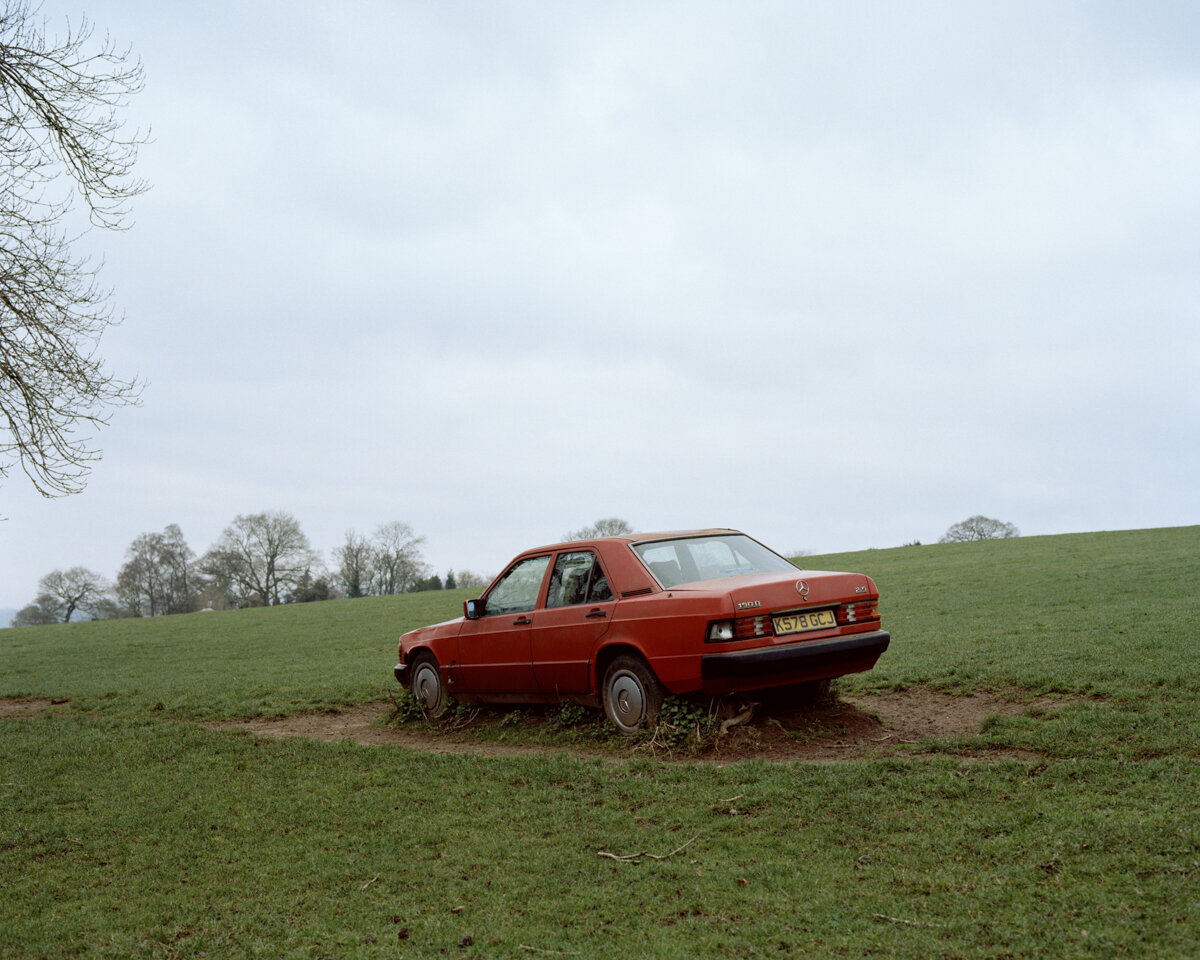Joseph Horton
Terrain Vague | The British countryside has been regarded as a retreat for many, seen as an escape from the constructed urban environment and a place of contemplation. However, this reflection is not wholly relatable as for its inhabitants these spaces present conflict between ideology and reality. Along our border lands two coexisting identities can be found, creating a space which is not easily defined. Formerly attributed to the hardships of industrial closure the south Wales landscape sits alongside traditional pastoral visions associated with Britain. The divide is a ‘trunk’ road which joins England and Wales, whilst forming an unofficial border between rural and industrial South Wales. Its creation has been continually developed since the early 00’s and has seen further development with the help of European funding. Interested in exploring the complex social and cultural identity of this road I sought to inject a contemporary view of reflective and open imagery which, in my view, can be seen in documentary photography today; lyrical, ambiguous and ‘post-truth’.
Working within a political landscape, as photographers, the creation of work for the cause of political comment versus that which speaks within political climates is a hard discussion to disentangle. This, for me, is where photography allows us to begin to unravel the complexities of cultural and political identities. The project attaches an ambiguity toward its subjects, one that gives space to think and from it, we find a balance between evidence and lyricism; it is in this dialogue that the work was made. The area in question is a web of rural, non-rural, urban, suburban sectors all of which have boundaries which blur into each other. Who we are and how we think these places look still remain and are easily found but if you look closer at their makeup and the surrounding spaces you get a sense of the messy truth which builds this picture. Attracted to the political and cultural notions attached to the road I looked to its surrounding space finding solitude in a transitory environment. So the work has become more of a reaction to that, seeking out scenes in the world which represent this feeling. It does not serve to illustrate the roads completion and history, but to explore how it as an object can talk about our relationship to travel and the micro climates that build our complex rural spaces.
The project can be seen as an investigation into national/cultural identity and a quickly changing landscape but more deeply it is a reaction to ‘landscape’, and specifically how it has been historically represented. It is important that representation from across our country is understood with the depth and understanding that transcends pictures of fields. Those areas which carry the most weight are often the most overlooked, hidden in the everyday and familiar. joseph-horton.com























